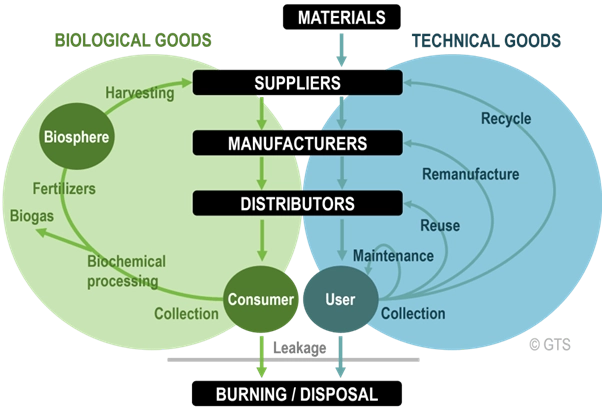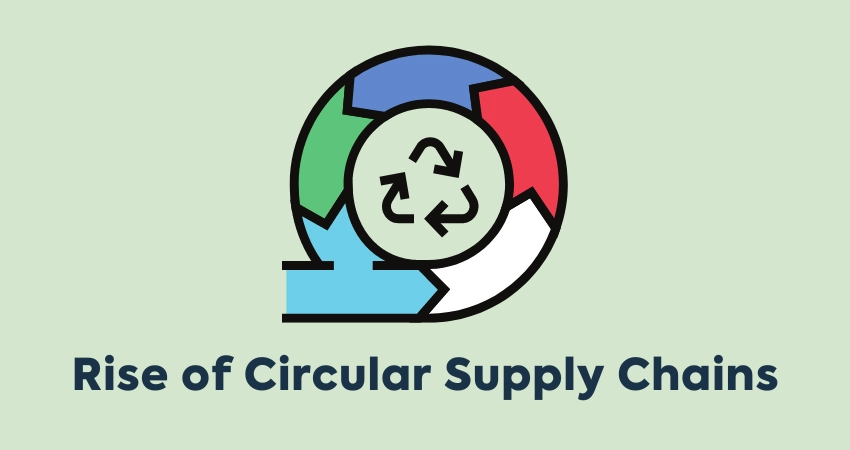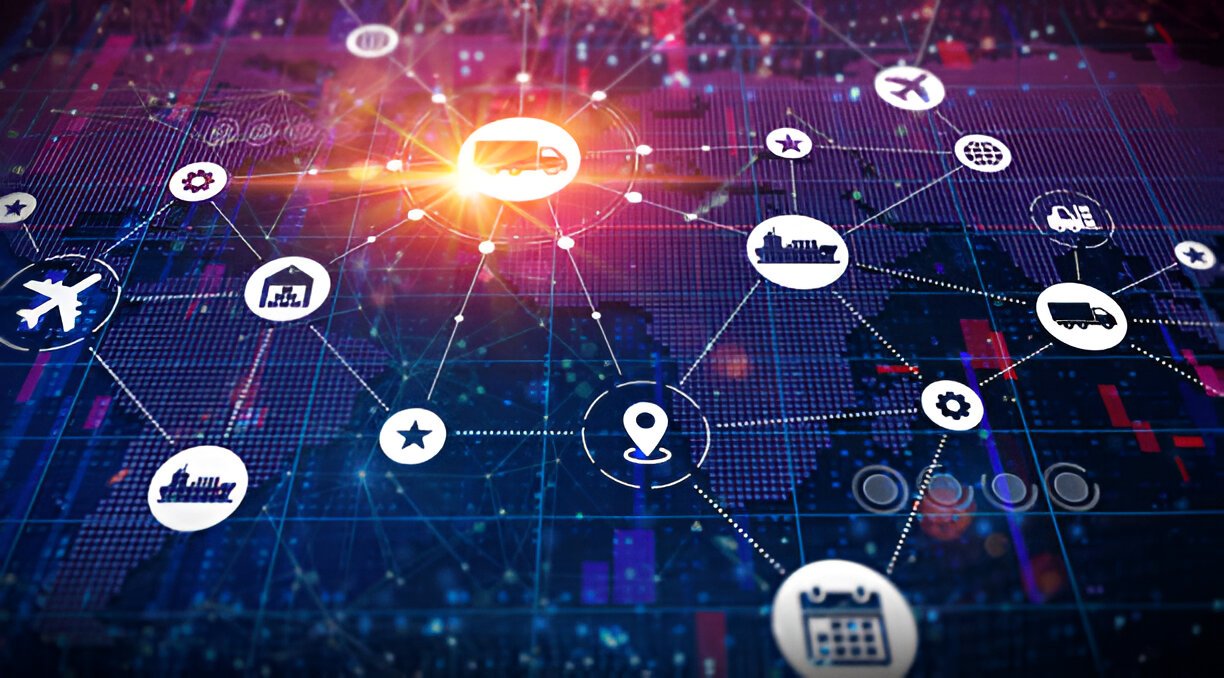The rise of circular supply chains is a response to the growing recognition of the need for more sustainable and environmentally friendly business practices.
Traditional linear supply chains, which operate on a “take-make-dispose” model, have significant negative impacts on the environment, including resource depletion, waste generation, and pollution. In contrast, circular supply chains aim to reduce waste and maximize resource efficiency by creating closed-loop systems.

Circular Supply Chains and the Circular Economy
Circular supply chains involve designing products and processes with the intention of keeping materials and resources in use for as long as possible. This is achieved through various strategies, such as recycling, remanufacturing, and refurbishing products at the end of their life cycle. The concept of the circular economy underpins the development of circular supply chains, focusing on the principles of reducing, reusing, and recycling.
Product Lifecycle Management
One key aspect of circular supply chains is the emphasis on product lifecycle management. This involves considering the entire lifespan of a product, from the extraction of raw materials to its disposal, and finding ways to minimize waste and maximize value at every stage. For example, instead of discarding a product at the end of its use, companies can implement take-back programs to reclaim materials and components for reuse or recycling.
Collaboration and Cooperation
Another important component of circular supply chains is collaboration and cooperation among different stakeholders. To effectively close the loop, companies need to work together with suppliers, manufacturers, distributors, and customers to ensure the flow of materials and products back into the system. This may involve establishing reverse logistics networks and implementing effective tracking and tracing systems to facilitate the return and reintegration of materials into the supply chain.
Role of Digital Technologies
The rise of digital technologies and innovations such as the Internet of Things (IoT), blockchain, and artificial intelligence (AI) has also played a significant role in enabling the development of circular supply chains. These technologies provide improved visibility, transparency, and traceability, making it easier to track and manage products throughout their lifecycle and ensure proper sorting and recycling.
Benefits of Circular Supply Chains
Circular supply chains offer several benefits for businesses and the environment. By reducing waste, companies can save on raw material costs, lower disposal costs, and reduce their environmental footprint. Moreover, embracing circularity can enhance a company’s reputation and appeal to environmentally conscious consumers, leading to increased brand value and customer loyalty.
Government Support and Regulations
Governments and international organizations have also recognized the importance of circular supply chains and are actively supporting their adoption. Many countries have introduced regulations and incentives to promote sustainable practices, such as extended producer responsibility (EPR) laws and tax breaks for companies that implement circular economy strategies.
Conclusion
In conclusion, the rise of circular supply chains represents a shift towards more sustainable and responsible business practices.
By designing products and processes with the goal of maximizing resource efficiency and minimizing waste, companies can contribute to a more circular economy and mitigate the environmental impact of their operations.
With the right technologies, collaborations, and regulatory frameworks in place, circular supply chains have the potential to transform industries and create a more sustainable future.
References:
https://www.selecthub.com/supply-chain-management/supply-chain-management-future-trends/#6
https://www.inboundlogistics.com/articles/green-supply-chains-sustainability-sells/

Aftab Khan is a logistics specialist with over forty years of experience in all aspects of supply chain and logistics management. He is an engineer by training and holds an MBA, besides several certifications from APICS/ASCM, ISCEA, and BRASI. Mr. Khan is the Executive Director of Business Research and Service Institute LLC, USA.
-
Aftab Khan#molongui-disabled-link





Comment (1)
Kamran Anwer June 22, 2023
Circular supply chains has numerous positive implications for businesses, society, and the environment. Circular supply chains help reduce waste, promote resource efficiency, and minimize environmental impact. By focusing on recycling, reusing, and repurposing materials, these supply chains contribute to a more sustainable and greener future.
Reply